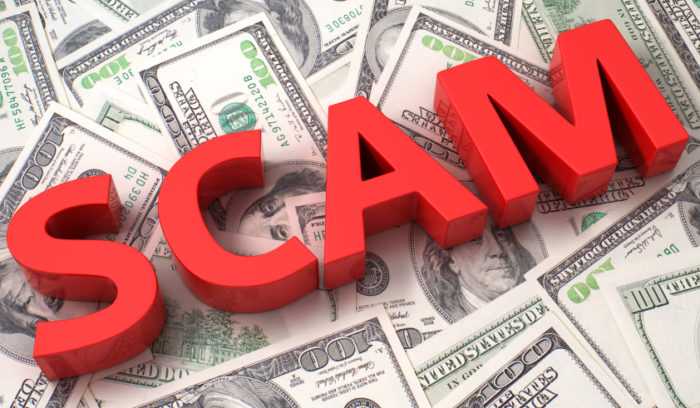
Scams in the world of trading are not rare, so pay attention to the following situations.
By Guy Avtalyon
The intent of all the scammers is to get hold of your money. Scams come to us with many faces, different forms, but all of them have one goal: to make us poor. They are getting us to reveal our personal details, steal our information, or make us to voluntarily give them cash.
At first, everyone thought the Internet was a safe place. But we all can become an easy target for evil actors who want to steal our personal data.
How to recognize scams?
Criminal minds can reach into our private lives, our homes, and our work offices.
And there is little we can do about it. Attack tactics and tools vary from traditional attacks from malicious software to ingenious phishing scams. They are usually developed in regions where justice can’t easily reach out to catch them.
The forex market involves very active trading of over $1 trillion each day, with futures and currency options, it is closer to $5 trillion daily. The market does not have strong regulation, although things have started to improve recently.
Let’s say, everyone wanting help in making money in the stock market will be interested in finding a trading system.
There are plenty available.
Unfortunately, there are so many humbugs in the trading system.
How to separate the legitimate trading systems from the scammers?
Based on research and experience, here are some good ways to mark trading system scams:
- Do your own research. There is no need to be in a hurry when you have to invest your own money. You should first read up on the steps of investing. Make sure you know at least the basic setups of trading and investing. Be very cautious with online trading.
- Choose a trading system. Successful trading systems can be a hedge fund or mutual fund. If you want to invest in something that has clear systematic knowledge-based information, you have to pick some trusty trading system.
- * Examine a trial period. An investment scam often does not include trial-periods or customer satisfaction. Before you invest your money, you should invest your time in researching the terms and conditions of the item.
- * Check a broker report. It has to be registered, so you may get reports that include information such as qualifications, reliability, and employment history. This can help you to spot any previous problems or concerns before investing.
Cybercriminals will pull you to believe you can make money easy and fast on the internet. They’ll promise you plans and methods of getting rich quickly. It is quite simple especially when someone is in a difficult financial situation.
How do trading scams work?
This scamming method is similar to the romance scam.
Cyberattackers approach to the emotional side of victims. For example, the false posting of non-existent jobs for a variety of positions is one of the online criminals’ methods.
Using different job types, such as work-at-home, the victim is pushed to give personal and financial data with the promise of a well-paid job. Of course, it carries lots of money in a very short time. For sure.
Never share sensitive financial information with anyone you don’t know well. Scammers can reach you out via phone, SMS, or email. They can contact you, pretending they are from a financial institution or government agency.
They could tell your account is compromised or needs to be updated. These criminals are trying to trick you into giving them your credit card number, Social Security number. This scam is known as phishing.
Keep in mind, your bank or credit card provider will never ask you for personal data in that way. If you receive a suspicious call or email, call the credit card provider or bank immediately to check on your account status.
Let’s go back to trading.
One of the challenges a novice forex investor faces is how to determine which operators to trust in the forex market and which to avoid. Signal sellers are a good example. Some analysts propose that many or even most signal sellers are scammers. A frequent criticism is that if it were really possible to use a system to beat the market, why would anyone that has this information make it widely available?
Other analysts distinguish between known scammers and more reputable information sources such as Metatrader, that offer a well-thought-out signaling service.
Behind these views lies a larger difference of opinion on whether anyone can predict the next move in a trading market. The best way to determine if a signal seller can benefit you is to open a demo trading account with one of the better-known forex brokers. Be patient, and you’ll determine whether predictive signaling works for you or doesn’t.
Some forex brokers do not deal fairly with their customers and defraud them. You should trade with a broker that also handles other stock market trades and is subject to SEC and FINRA oversight.
The forex trade itself may be unregulated, but no broker as the subject of such oversight would risk its license for other securities by defrauding its forex customers.
Follow these signals because such scammers are always coming back. With the same or slightly altered face.



Leave a Reply